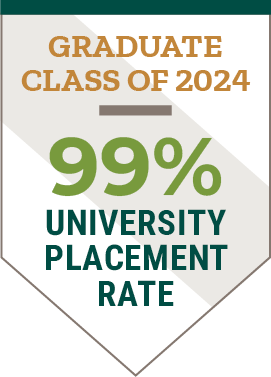
Shape Your Future as a Leader
In today's global economy, an MBA opens the doors to opportunities in almost any industry. It signals to employers that you are a strategic thinker, a decision-maker and a change agent. With a degree this versatile and interdisciplinary, you will acquire the kind of business acumen to create real impact. If you are ready to advance your career, the residential, accelerated MBA program at Clarkson University can help you get to the next phase.
Why Earn an MBA Degree From Clarkson?
The Master of Business Administration at Clarkson University prepares you for leadership roles in the fast-paced world of business. You will sharpen your strategic thinking, develop leadership skills and generate innovative solutions.
The curriculum has been designed to be rigorous and efficient. You can earn the degree in as few as nine months at our Potsdam Campus. Receive a solid foundation in essential business competencies with our core courses, and use electives to focus your studies on your unique goals.
Our curriculum is about equipping you with the tools to make decisions in ambiguous and complex situations. You are learning to influence and make decisions by combining knowledge with leadership prowess.
The program's global outlook also offers you the chance to gain real-world experience abroad.
The David D. Reh School of Business is considered one of the best in the nation by U.S News & World Report, Fortune magazine and others. You will graduate with a degree that is well-respected by employers and with experiences that will make you stand out in the job market. We offer what few business schools do: high-quality, competitive opportunities within a tight-knit community.
What You'll Learn
Some of the skills you'll develop in the residential MBA include:
- Analytical abilities and decision-making
- Business and management principles
- Effective strategy and operations
- Effective written and verbal communication
- Ethics and social responsibility
- Finance, accounting and economics
- Leadership and teamwork




